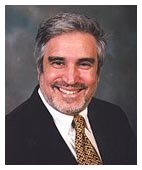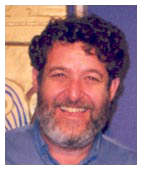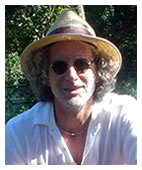THINK TANKS
- What a Think Tank is
- Past Think Tanks
- Think Tank XIX
- Think Tank XVIII
- Think Tank XVII
- Think Tank XVI
- Think Tank XV
- Think Tank XIV
- Think Tank XIII
- Think Tank XII
- Think Tank XI
- Think Tank X
- Think Tank IX
- Think Tank VIII
- Think Tank VII
- Think Tank VI
- Think Tank V
- Think Tank IV
- Think Tank III
- Think Tank II
- Think Tank I
PAST THINK TANK: THINK TANK V
Keynote Speakers
PETER E. TARLOW PhD
Title: Disaster Management: Exploring Ways to Mitigate Disasters before they Occur
Date: June 17, 2005
 Peter E. Tarlow is a sociologist specializing in the impact of crime and terrorism on the tourism industry and also in tourism and economic development. Tarlow earned his Ph.D. in sociology from Texas A&M University. He also holds degrees in history, in Spanish and Hebrew literatures, and psychotherapy. In 1990, Tarlow introduced one of the nation's first courses on the Sociology of Tourism, and in 1994; Tarlow designed and taught a groundbreaking course on Tourism, Crime & Security. Since 1997, Tarlow has also taught tourism security courses for the International Association of Chiefs of Police.
Peter E. Tarlow is a sociologist specializing in the impact of crime and terrorism on the tourism industry and also in tourism and economic development. Tarlow earned his Ph.D. in sociology from Texas A&M University. He also holds degrees in history, in Spanish and Hebrew literatures, and psychotherapy. In 1990, Tarlow introduced one of the nation's first courses on the Sociology of Tourism, and in 1994; Tarlow designed and taught a groundbreaking course on Tourism, Crime & Security. Since 1997, Tarlow has also taught tourism security courses for the International Association of Chiefs of Police.
Tarlow is a member of the Distance Learning Faculty of “The George Washington University” in Washington. DC, and he is an adjunct faculty member of Colorado State University and a honorary professor at the Universidad de Especialidades Turisticas (Quito, Ecuador) and of the Universidad de la Policia Federal (Buenos Aires, Argentina). He lectures at numerous other universities around the world including universities in the United States, Latin America, Europe, and the Middle East.
In 1996, Tarlow became Hoover Dam’s head advisor for tourism development and security. In 1998, Tarlow’s role at the Bureau of Reclamation expanded. He was promoted to head advisor on tourism security for all Bureau of Reclamation properties and visitor centers. In 1999, Tarlow was also asked to work with US Customs agents in the area of customer service and cultural awareness and custom’s impact on tourism. In 2000 Tarlow, due to interagency cooperation on the part of the Bureau of Reclamation, helped to train security personnel for the FBI in preparation of the Salt Lake City 2002 Olympics.
Early in 2001 Tarlow was made part of the senior security team of the Bureau of Reclamation (Department of the Interior) and is a member of its critical infrastructure committee. In this capacity, Tarlow works with other government and international agencies such as the US Park Service at the Statue of Liberty, The Smithsonian's Institution's Office of Protection Services, the FBI, The Royal Canadian Mounted Police, the World Tourism Organization, and police departments around the world.
Since the Sept. 11, 2001 attack on the United States, Tarlow has had to travel throughout North America representing the US government. He speaks on issues such as: the sociology of terrorism, its impact on tourism security, how the US government can help local agencies to recover, and how communities must face a major paradigm shift in the way it does business. Tarlow has trained numerous police departments in both the US and Mexico in TOPS (Tourism Oriented Policing Skills) and offers certification in this area.
Tarlow's fluency in many languages enables him to speak throughout the world (United States, the Caribbean, Latin America, Europe, and Africa). Tarlow lectures on current and future trends in the tourism industry, rural tourism economic development, the gaming industry, issues of crime and terrorism, the role of police departments in urban economic development, and international trade. Tarlow has done extensive research on the impact of school calendars on the tourism industries, on tourism crime, and on terrorism. Tarlow is also well known in the area of rural tourism having lectured on this subject in numerous states throughout the United States. Tarlow publishes extensively in these areas and writes numerous professional reports for US governmental agencies and for businesses throughout the world.
Tarlow speaks at numerous governors' conferences and international meetings on tourism, and its economic and sociological impact. Tarlow has appeared on National televised programs such as Dateline: NBC and on CNBC. Tarlow organizes conferences around the world dealing with visitor safety and security issues and with the economic importance of tourism and tourism marketing. He also works with numerous cities, states, and foreign governments to improve their tourism products and to train their tourism security professionals. John Wiley & Sons published Tarlow's new book on event risk management, Event Risk Management and Safety in July of 2002, and his new book on Tourism Safety is to be published by the US Government Printing office Department of the Interior.
Tarlow is a founder and president of Tourism & More Inc. (T&M). He currently is the president of the Texas Chapter of the Travel and Tourism Research Association (TTRA). Tarlow is a member of the International Editorial Boards of "Turizam" published in Zagreb, Croatia, "Anatolia: International Journal of Tourism and Hospitality Research," published in Turkey, "Turismo: Visão e Ação" published in Brazil, and "Estudios y Perspectivas en Turismo," published in Buenos Aires, Argentina. Tarlow co-edited the special August 1999 edition of the Journal of Travel Research on “War, Terrorism, and Tourism.” Tarlow is a member of the American Society for Industrial Security (ASIS).
Tarlow writes and publishes “Tourism Tidbits,” an electronic newsletter on tourism and travel. Tidbits is read monthly in its English, Spanish and Croatian language editions by thousands of tourism and travel professionals around the world. Tarlow is a member of the national and Texas Chapters of ASIS.
DAVID BEIRMAN PhD
Title: Marketing Tourism Destinations from Crisis to Recovery: A Strategic Marketing Approach.
Date: June 18, 2005
 David Beirman is the founding Director of the Israel Tourism Office Australasia & SW Pacific and the first non-Israeli contracted by the Israel Ministry of Tourism to run an Israel Tourism office. He has held the position since 1994. He is also the founder and inaugural Chairman of the Eastern Mediterranean Tourism Association (Australia) which was established in 2001 to market and promote the eleven countries between Italy and Jordan to the travel industry and public. He is a Board member of ANTOR (Association of National Tourist Office Representatives Australasia) and a member of the Australian Travel Industry Advisory Committee to DFAT which negotiated the Charter for Safe Travel, the first of only two agreements in the world between a government and its travel industry. David has been professionally active in the travel industry for 24 years including ten years working for Jetset Tours in a variety of roles ranging from travel consultant to personnel and in-service training manger. Since 1989 he has been the principal of his own training and management consultancy firm Struan & Associates specialising in the travel industry.
David Beirman is the founding Director of the Israel Tourism Office Australasia & SW Pacific and the first non-Israeli contracted by the Israel Ministry of Tourism to run an Israel Tourism office. He has held the position since 1994. He is also the founder and inaugural Chairman of the Eastern Mediterranean Tourism Association (Australia) which was established in 2001 to market and promote the eleven countries between Italy and Jordan to the travel industry and public. He is a Board member of ANTOR (Association of National Tourist Office Representatives Australasia) and a member of the Australian Travel Industry Advisory Committee to DFAT which negotiated the Charter for Safe Travel, the first of only two agreements in the world between a government and its travel industry. David has been professionally active in the travel industry for 24 years including ten years working for Jetset Tours in a variety of roles ranging from travel consultant to personnel and in-service training manger. Since 1989 he has been the principal of his own training and management consultancy firm Struan & Associates specialising in the travel industry.
Dr. Beirman has extensive university lecturing experience in the fields of Tourism, Market Research, Middle East Studies and Sociology. He has lectured At the University of Technology - Sydney, University of Sydney, University of NSW and has guest lectured at many schools of tourism and professional and academic conferences and symposia in Australia, New Zealand, Singapore, Hong Kong, Canada, Kenya, Philippines, Vietnam, Thailand and Israel. His articles on tourism crisis management have been published by international publications including the International Journal of Vacation Marketing, AFTA Traveller and PATA's publication Compass. His first book, Restoring Tourism Destinations in Crisis-A Strategic Marketing Approach was published in April 2003 by Allen & Unwin Australia for Australasian distribution and CABI Publications globally.
As a direct result of the book Dr. Beirman was invited by the leadership of the Kenyan tourism industry to go to Kenya in May 2003 to develop and implement a strategy to manage Kenya's tourism industry marketing crisis which arose from negative travel advisories in April 2003. In May and June 2003 Tourism NSW invited him to assist regional tourism associations in developing marketing recovery strategies following drought and bushfires. In July 2003 Dr Beirman was the keynote speaker at the Asia-Pacific Tourism Association Conference, the region's premier gathering of tourism academics. In September 2003 he was keynote speaker at the annual conference of the Philippines tourism industry. In January 2004 he was a speaker at the Prime Minister's Conference on Tourism in Israel and in late September and October 2004 he was keynote speaker at the ABACUS Conferences "Rewarding Partnerships" held in Hanoi, Vietnam and Bangkok Thailand. Beirman is frequently consulted by tourism professionals, academics and the media on the field of managing a wide range of crises including war, terrorism, epidemic, natural disasters and crime waves which impact on global and Australian tourism. He is based in Sydney.
Contacts: Tel: 61 2 9328 1722, Fax: 61 2 9326 1676
david@aicc.org.au
SCOTT K. CUNLIFFE PhD
Title: Tourism Risk Management for Small and Medium Enterprises
Date: June 19, 2005
 A consultant to government and the private sector throughout the Asian region, Mr. Cunliffe specializes in strategic planning and risk management for sustainable tourism whilst living in South East Asia, the USA and Europe for the last fifteen years.
A consultant to government and the private sector throughout the Asian region, Mr. Cunliffe specializes in strategic planning and risk management for sustainable tourism whilst living in South East Asia, the USA and Europe for the last fifteen years.
His recent PhD research focused on tourism risk management for coastal tropical areas, which developed a comprehensive approach to sustainable tourism with risk management at the core. Milestone projects include: the introduction of the Main Street urban revitalization process to community and business development in Australia; cultural heritage and conservation planning for the ancient city of Angkor in Cambodia; Team Leader for the Asian Development Bank longterm tourism development plan for the Greater Mekong Sub-region, and tourism development strategies in more than a dozen Asian countries and regions for the World Tourism Organization.
Trained as an architect and urban planner, his first project for the United Nations Children's Fund (UNICEF) in Vietnam in 1985 nurtured a growing interest in risk management, strategic planning and long-term forecasting. His current professional activities are focused on introducing risk management methodologies to mitigate the impacts of disaster and catastrophes affecting communities and tourism businesses in coastal areas.
The presentation initially presents some recent research on risk models, their origins and their adaptation to tourism businesses. Risk management is a critical sustainable tourism working tool that can minimize losses of all kinds resulting from both natural and anthropogenic hazards. A few practical templates will illustrate the application of risk management methodologies that respond to the needs of the tourism industry small and medium enterprises in coastal tropical areas. The approach adopts the term ‘Total Risk’ to describe what is needed to provide small businesses with a means to minimize future losses
Secondly, the presentation will look at some existing examples of the inclusion or not of using risk management as a sustainable tourism planning tool. One such example is how the tourism sector of the economy was considered in the initial response to the recent Indian Ocean tsunami in examples of macro-economic recovery planning. The evidence is dismal, apart from the tourism industry response illustrated in the Phuket Action Plan draft from February 2005.
Thirdly, the presentation will take the ‘Total Risk’ approach to describe a few essential components of what is termed ‘Critical Risk Infrastructure’ including risk financing, which needs urgent attention. Finally, the presentation will suggest a possible approach for integrating risk management into sustainable tourism that may require a paradigm change to include risk analyses in a comprehensive approach to minimizing future loss potential of small and medium tourism businesses. The future of sustainable tourism must necessarily account for the uncertainties of disaster and catastrophe and we possess the tools to act responsibly.

